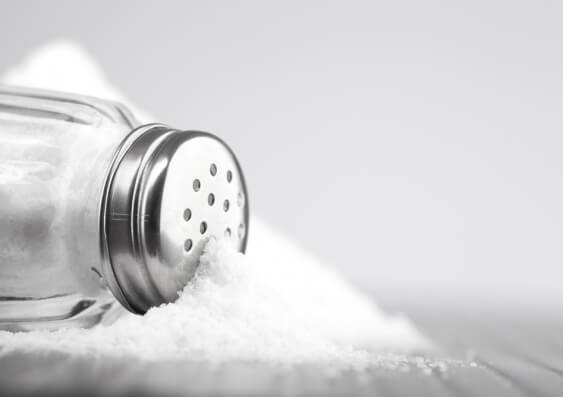Using salt substitutes can lower risk of stroke, death, says Study
Sat 08 Feb 2025, 01:10:25

A new study has found that switching regular salt with a substitute that has a lower sodium content can help to reduce the risk of recurring stroke by up to 14 per cent and that of death by 12 per cent. The study was published in The Journal of the American Medical Association (JAMA) Cardiology and included researchers from Wuhan University, China and The George Institute for Global Health, Australia among others.
Regular salt is increasingly being recommended for preventing heart disease, with the World Health Organization (WHO) advising a daily intake of under five grams of salt or about two grams of sodium. Salt substitutes are alternatives containing potassium and lower levels of sodium.
Earlier studies show that lowering sodium intake and supplementing potassium can help to reduce one's blood pressure levels and cardiovascular risks which include stroke.
For the study, researchers analysed data collected from the 'Salt Substitute and Stroke Study' (SSaSS) trial. The SSaSS trial began in 2014 and aimed to compare the effects of using a salt substitute; 75 per cent sodium chloride, 25 per cent potassium chloride with those of regular salt (entirely sodium
chloride).
chloride).
Nearly 21,000 participants from 600 rural villages across five Chinese provinces were recruited. About three-fourths of the study group had a history of stroke and almost 90 per cent were aged over 60 years with high blood pressure.
The authors of the study said, "The use of a salt substitute led to a 14 per cent reduction in the risk of recurrent stroke and a 12 per cent reduction in mortality." Recurring strokes were found to be significantly lower in the group taking the salt substitute (16.8 per cent), compared to the one taking salt (19 per cent).
The researchers said that death risk related to stroke fell by 21 per cent.
The authors said that a simple dietary intervention of switching salt with a substitute, therefore, presents a cost-effective option for stroke survivors. This study provides evidence to inform public health strategies around the world, especially among people relying on food cooked at home using salt.
The authors wrote, "When scaled up and sustained over time, the simple intervention of salt substitution could significantly improve secondary prevention of stroke and cardiovascular health on a global scale."
No Comments For This Post, Be first to write a Comment.
Most viewed from Health
AIMIM News
Latest Urdu News
Most Viewed
May 26, 2020
Do you think Canada-India relations will improve under New PM Mark Carney?
Latest Videos View All
Like Us
Home
About Us
Advertise With Us
All Polls
Epaper Archives
Privacy Policy
Contact Us
Download Etemaad App
© 2025 Etemaad Daily News, All Rights Reserved.






























